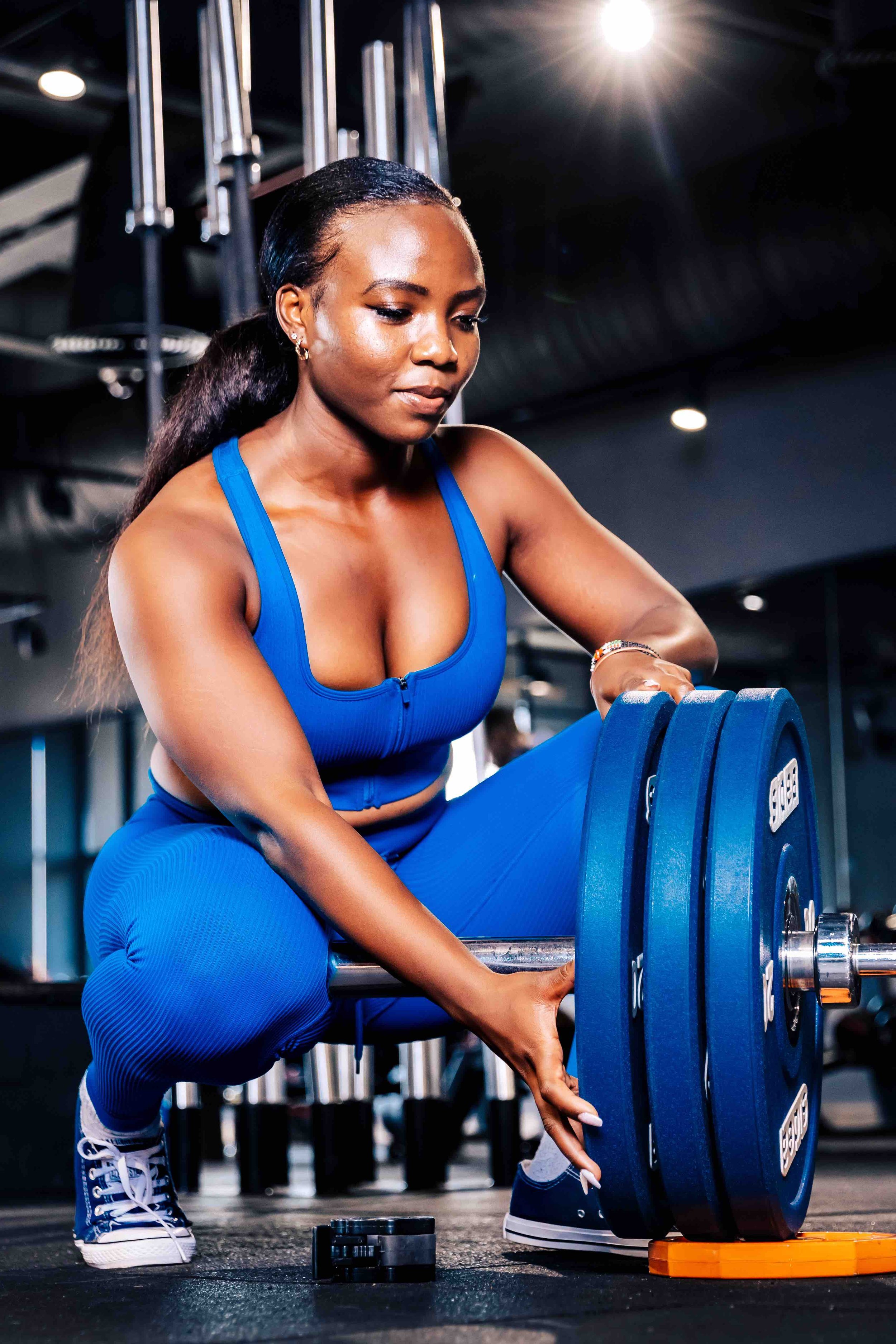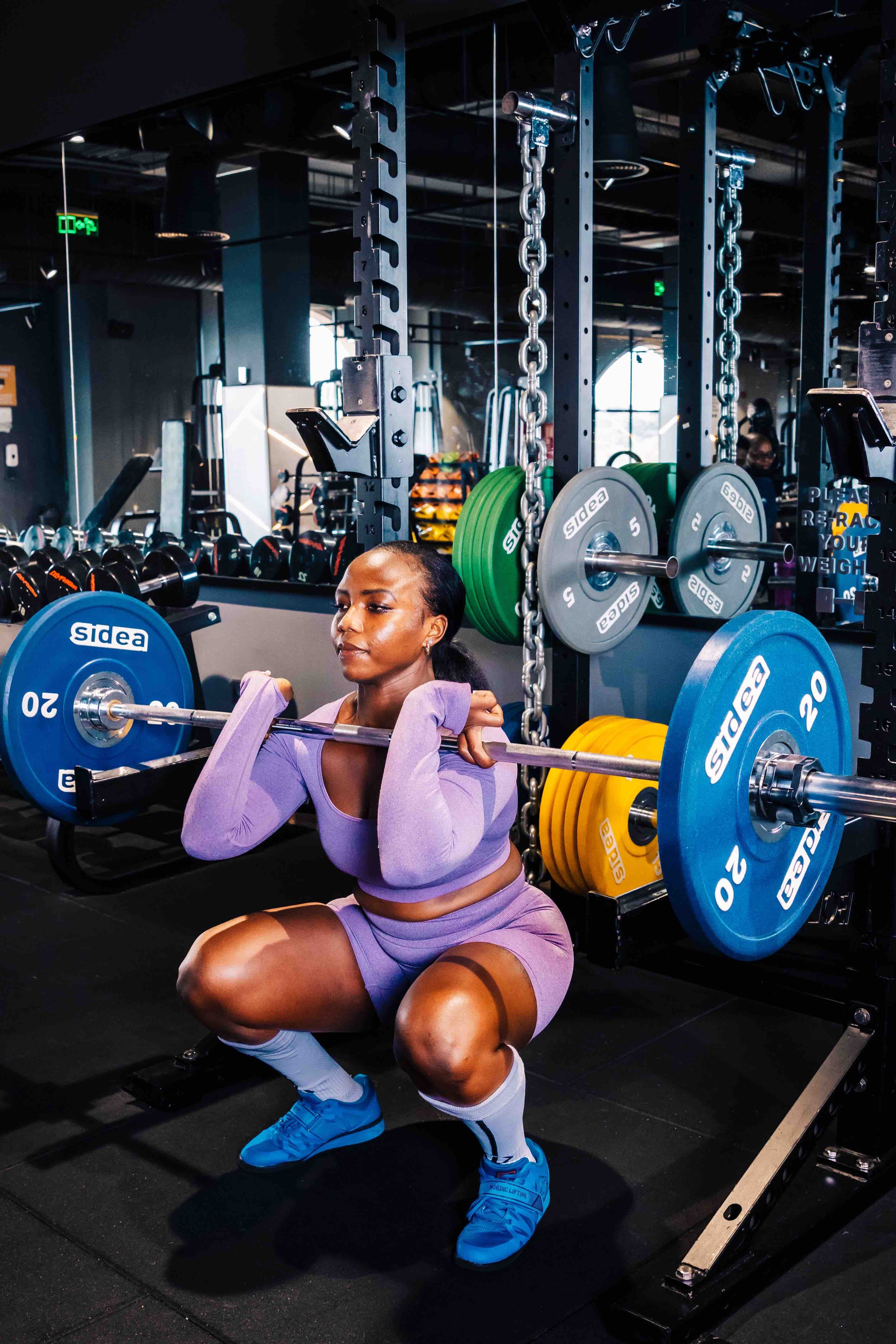Interview: Esther Chenang’at
We speak to Kenya’s strongest woman, Esther Chenang’at, about her journey as a powerlifter, the competitive powerlifting scene in Kenya, and her preparation for competitions.
FLEX: How long have you been working out?
Chena: I’ve been lifting heavy for three years, but before that I used to swim competitively since high school. There was a small patch of home workouts in between that.
What inspired you to start powerlifting?
After high school and university, there were no groups to competitively swim with. I’m also self-employed, with no work team, so I decided to look for something new. I went to the gym and started lifting, and that’s where I learnt that there were differences between powerlifting, bodybuilding and Strongman.
Is there anyone that you looked up to when you were coming up as powerlifter?
Yes, Lya Bavoil, from France. She’s a 69kg powerlifter, but she’s so strong. I think her heaviest squat is 215kg. She fluctuates between 63kg and 69kg, so she is incredibly strong. I saw her and thought, if that’s what I can be, let me be that.
Tell us about your training and how you prepare for a competition.
I like the Russian style of training, which is pretty intense. You just focus on the three main lifts with heavy volume. Heavy volume means lots of sets and minimal reps. So, for example, for a squat workout I could do 7-10 sets of three reps each. Accessory work is very minimal. I’ll do squat with bench, or deadlift with bench. I’m trying to incorporate shoulders more, because my shoulder press is so bad. But you need it for the Strong Man competitions.
Just for the record, do you mind telling us your current personal best 1 rep. maximum (1RM) in the squat, bench and deadlift?
I tested my 1RMs back in May. They were 165kg for back squat, 190kg for deadlifts and 80kg for bench press.
Are you the strongest woman in Kenya?
So far yes, based off of the Strong Woman competitions. In the first one I took part in, there were 11 competitors, and then only seven in the second competition, and 11 again in the third. They are really good competitors; they keep me awake at night! But it’s fun, and they push me to be better.
What is your diet like and what supplements do you take?
I take whey protein, creatine and pre-workouts. I don’t take any vitamins – they are a waste of money. I just try to have a normal diet. But I do need to eat more.
Are there many female powerlifters in Kenya?
No, the first competition was held back in May, and that has made it more popular. What is more established is the Strong Man/Woman competition. That’s a different format. Powerlifting only involves the three main compound lifts. But for Strong Man, you do tyre flips, farmer’s walk, running… I’m not good at some of those things, but I hope there will be more powerlifting competitions here in the future. Otherwise, I’ll look outside Kenya.
When and where is your next competition?
There is a Strong Man competition in August in South Africa, which I might not be able to attend. After that there is another one in November and December in Kenya. So, it does mean I’m prepping for competitions a lot, adjusting my training to peak closer to the competition date, when my anxiety levels are up high!
Do you self-train or do you have a coach?
I have an online coach called Sheiko, who is in Russia. I use his app and it’s really intense. But I love it. I post videos of myself lifting, and there’s also an online community of lifters where you can critique each other. Everyone is pretty strong, and they compete internationally.
What achievements are you most proud of as a powerlifter?
Cracking the 120kg squat, because I was stuck there for two years. I finally cracked it this year. I was stuck mentally, but also my shoes have helped. I used to lift flat-footed, but the Nordic Lifting shoes made a huge difference. It’s worth getting the right equipment, but don’t rely on it. Now I can squat really well without those accessories, so using them helped me break that barrier.
Many women shy away from powerlifting and strength training in general because they are under the impression that they’ll instantly bulk up. If you could give them any advice, what would you say?
They shouldn’t be afraid of that. To get to that bulking size they are afraid of, they would have to be on massive amounts of food, even steroids. If anything, this type of training will help you look like the person you want to look like. It helps you put muscle in the right places, and feel strong and empowered. And anyone can do it; it’s not that I have more time, I’m just passionate about it, so I am able to push myself. And you don’t have to be a powerlifter, just lift weights and fall in love with the metal.
What advice would you give to young powerlifters – male and female – just getting into the sport?
First, I think they should learn about the sport by immersing themselves in the social media side of it, learn about the rules and get inspired by people. The next thing to do is get a coach, online or in-person. It’s a very basic sport but it can be confusing. Plus, you can always reach out to me and I can tell you which coaches are good, as I have researched them a lot.
Do you think the future is bright for powerlifting in Kenya? Why?
I think it is. It’s only the beginning right now. Strong Man is 5/6 years old, but powerlifting is just getting started. I can only imagine where we will be in the next few years. My numbers are going to be broken by somebody else, but I’m planning to break them myself first.
Instagram: @lechena




